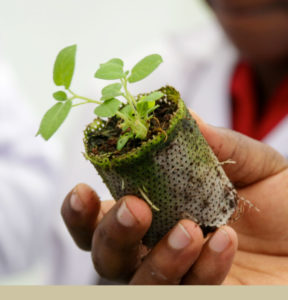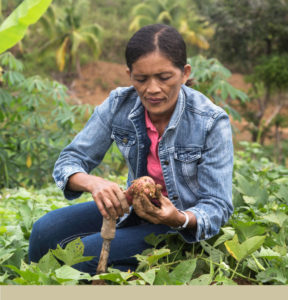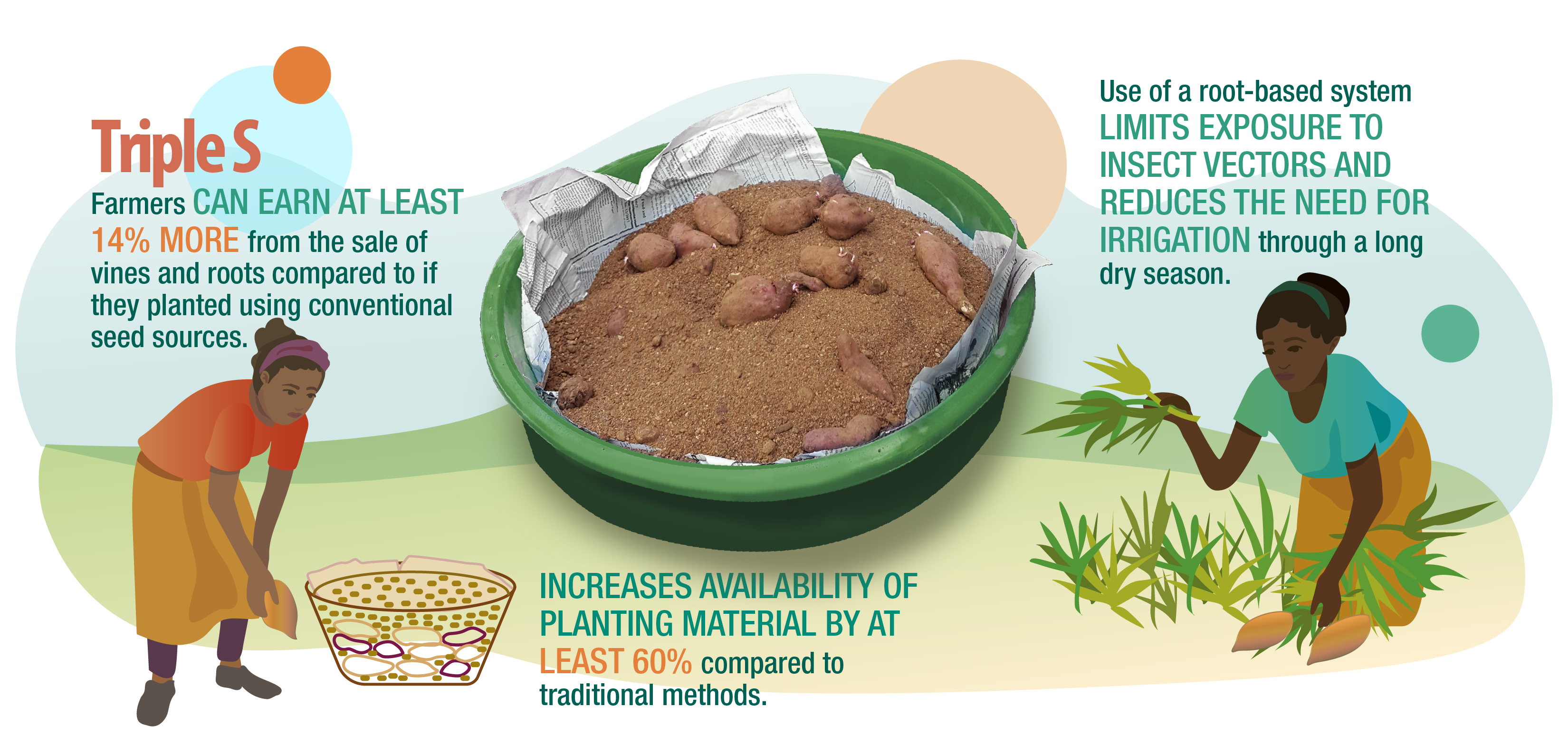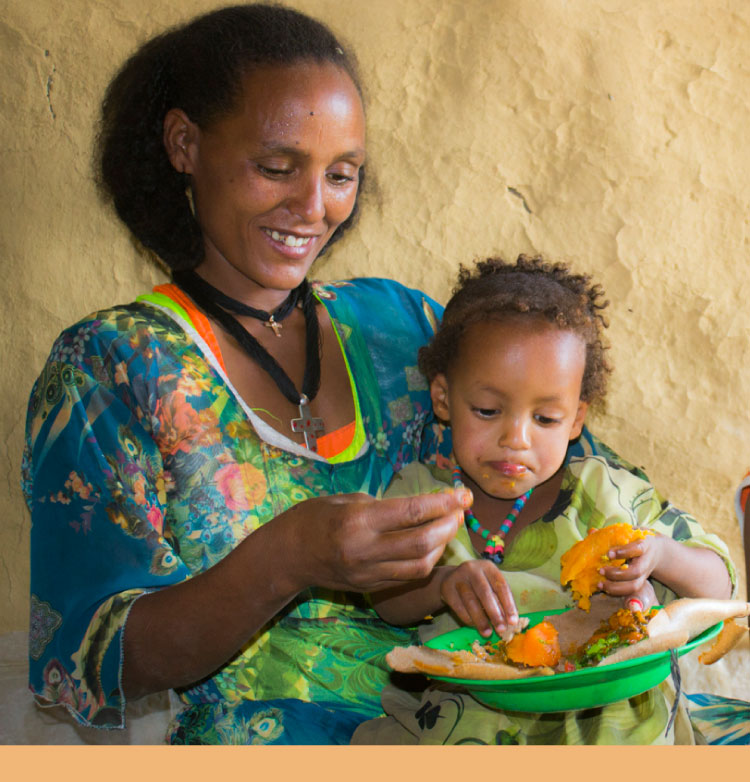INNOVATIONS
Triple S+: gender responsive options for higher yields and extended crop shelf life
- Nutrition & food security
- Poverty reduction, livelihoods & jobs
- Gender equality, youth & social inclusion
- Climate adaptation & green house gas reduction

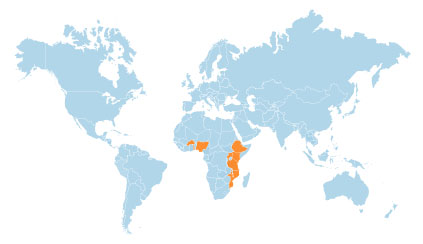
Adoption or impact at scale.
Taken up by ‘next users’
Start date: 2012 | End date: Ongoing
Increasingly unpredictable rainfall is hindering food production in Africa. Triple S (storing roots in sand and sprouting) is a system for conserving and multiplying sweetpotato planting material that helps farmers cope with climate change and grow a nutritious crop in areas where extended dry seasons severely limit food production. It also helps them avoid delayed planting and the accumulation of yield-reducing diseases and pests in planting material. It consists of storing sweetpotatoes in dry sand following the harvest, planting them in seedbeds 6-8 weeks before the rain season, and watering them to produce vines to plant when rains begin. It enables households to plant early, which results in early availability of nutritious food, higher yields and an average of 14% higher income.
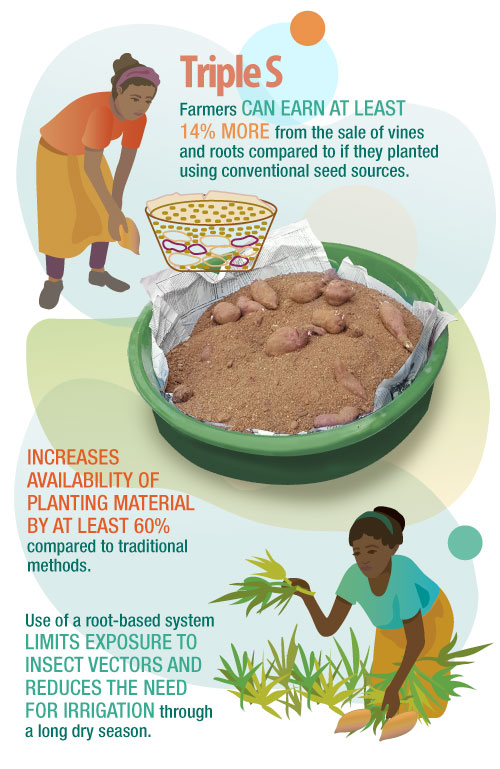
Using quality seed improves yields, but productivity is optimized by the use of best agronomic practices. Moreover, male and female farmers have different objectives, and access information through diverse pathways. Triple S PLUS thus includes a package of recommended agronomic practices, and training in options appropriate for female and male farmers for storing sweetpotatoes in sand, whether to use them to produce planting material for the next growing season or to extend their shelf life for consumption or sale. It also includes attractive, gender-responsive, multi-media communication materials (videos, radio, visual flip charts and handouts) in local languages to facilitate scaling.
Tens of thousands of male and female farmers in 10 African countries are now using this innovation package to address the challenge of timely availability of quality sweetpotato planting material, in order take advantage of the whole growing season, and harvest more.
RTB Scaling Fund; Bill and Melinda Gates Foundation; Natural Resources Institute; University of Greenwich (NRI); European Union.
CGIAR Research Program on Roots, Tubers and Bananas; CIRAD.
Ghana: Ministry of Food and Agriculture (MOFA) district assemblies and district departments. Mennonite Economic and Development Association (MEDA); Savannah Agricultural Research institute (SARI); USAID – Resilience in Northern Ghana (RiNG) community based organisations and Damongo Agricultural College.
Ethiopia: Bureau of Agriculture and Natural Resource Development (BoANRD); People in Need (PIN); Sodo Technical and Vocational Education Training Institute.



